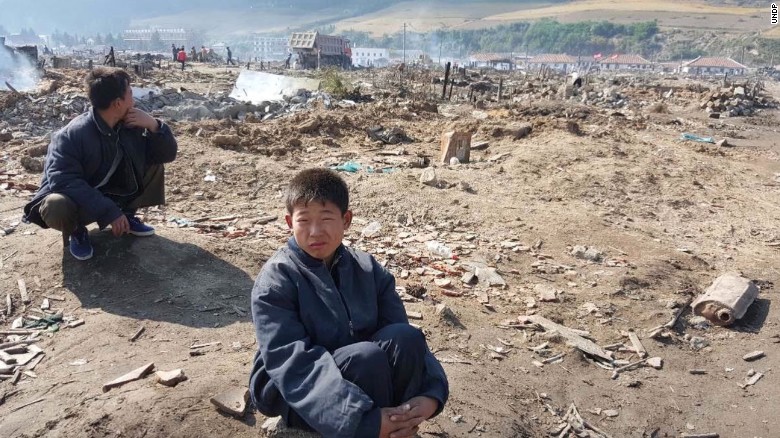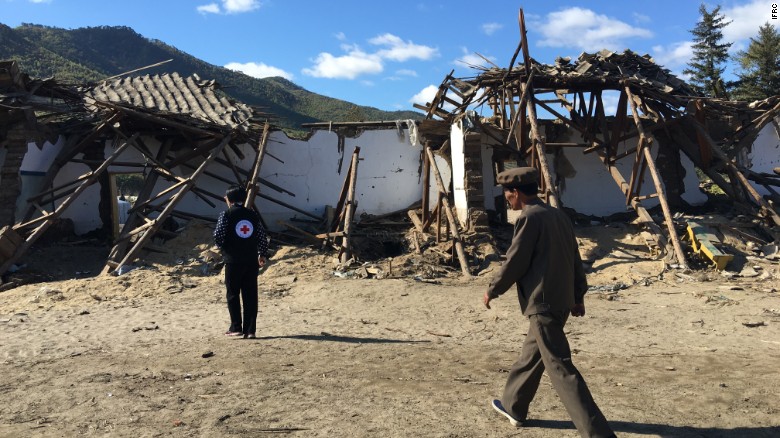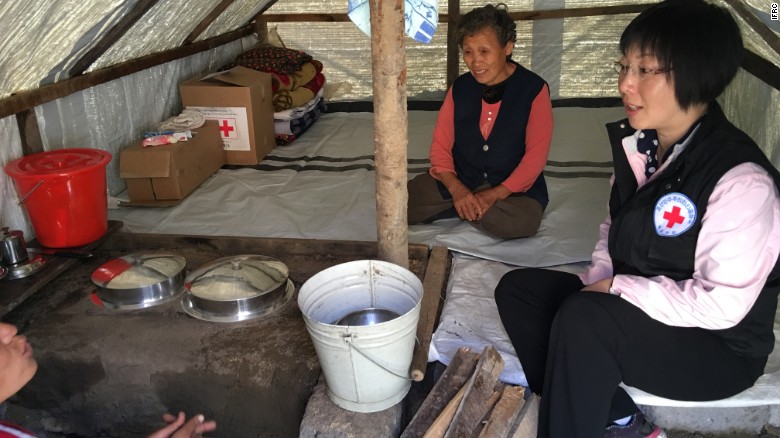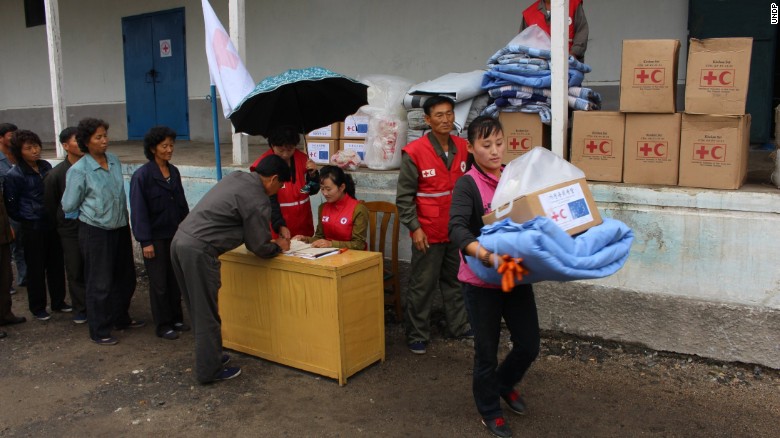(CNN) One month after devastating floods ravaged North Korea's northeast, aid agencies have warned that many survivors are homeless and at risk of disease as winter looms. "The situation at the moment isn't easy, but in two to three weeks it will be a different story," Patrick Elliott, a delegate with the International Federation of Red Cross and Red Crescent Societies (IFRC), said in a statement released Friday.
The IFRC has warned that incoming snowfall in October could be disastrous for unprepared flood survivors. "People have lost their coal supplies and are burning bits of wood in makeshift stoves to keep warm. They need proper roofs over their heads, fuel and warm clothes. The risk of a secondary disaster is very real." Elliott said that increasing numbers of old people and young people had been diagnosed with respiratory infections and diarrhea.
'Working against the clock'
The floods, considered the worst in decades, killed hundreds, left 70,000 people homeless, and a total of 140,000 people in desperate need of assistance in the north of Hamgyong province.
So far, the trained disaster response teams have provided emergency items such as warm bedding, water containers with purification tablets, cooking utensils, toiletries and emergency shelter to 28,000 people.
"Much is being done by the residents themselves and the civilian volunteers who have traveled to the area to help, but they are working against the clock," said Chris Staines, who headed up the IFRC delegation in North Korea.
Emergency appeal
On September 21, the IFRC launched a $15.5 million emergency appeal so they could deliver aid to 330,000 people. They have raised only 11% of the money. The flood-affected region has been described as particularly impoverished and a UN reportdescribes how north Hamgyong province has some of the highest levels of stunting and muscle wasting among children under the age of five.
The floods, according to an IFRC report, have also damaged over 27,000 hectares of arable land that would have provided essential food supplies for many families in the area. Flood waters have damaged 45 heath clinics, making medical supplies scarce, and clean water supplies have been disrupted for 600,000 people across Hamgyong province.
Flood survivors are currently staying in public buildings and with host families. While the IFRC is purchasing thousands of roofing sheets for temporary shelters, the North Korean government has started to reconstruct permanent homes.
On September 29, the Korean Central News Agency (KCNA) -- North Korea's official state news agency reported on the reopening of the Chongam-Haksong railway which will help bring building materials and relief supplies into the flood-stricken region.




No comments:
Post a Comment